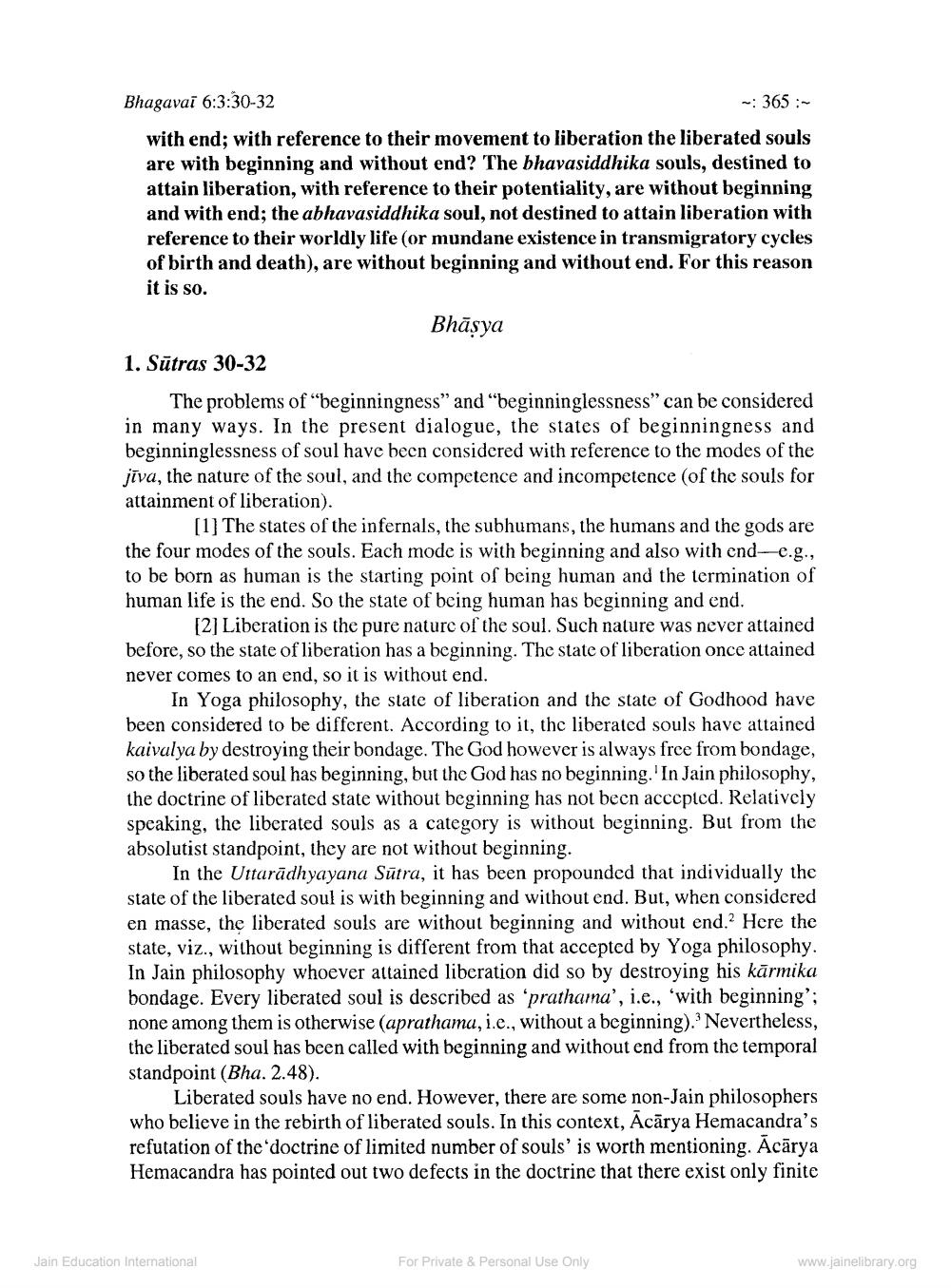________________
Bhagavai 6:3:30-32
- 365:with end; with reference to their movement to liberation the liberated souls are with beginning and without end? The bhavasiddhika souls, destined to attain liberation, with reference to their potentiality, are without beginning and with end; the abhavasiddhika soul, not destined to attain liberation with reference to their worldly life (or mundane existence in transmigratory cycles of birth and death), are without beginning and without end. For this reason it is so.
Bhāsya 1. Sūtras 30-32
The problems of "beginningness" and "beginninglessness" can be considered in many ways. In the present dialogue, the states of beginningness and beginninglessness of soul have been considered with reference to the modes of the jiva, the nature of the soul, and the competence and incompetence (of the souls for attainment of liberation).
[1] The states of the infernals, the subhumans, the humans and the gods are the four modes of the souls. Each mode is with beginning and also with end-e.g., to be born as human is the starting point of being human and the termination of human life is the end. So the state of being human has beginning and end.
[2] Liberation is the pure nature of the soul. Such nature was never attained before, so the state of liberation has a beginning. The state of liberation once attained never comes to an end, so it is without end.
In Yoga philosophy, the state of liberation and the state of Godhood have been considered to be different. According to it, the liberated souls have attained kaivalya by destroying their bondage. The God however is always free from bondage, so the liberated soul has beginning, but the God has no beginning. In Jain philosophy, the doctrine of liberated state without beginning has not been accepted. Relatively speaking, the liberated souls as a category is without beginning. But from the absolutist standpoint, they are not without beginning.
In the Uttarādhyayana Sūtra, it has been propounded that individually the state of the liberated soul is with beginning and without end. But, when considered en masse, the liberated souls are without beginning and without end. Here the state, viz., without beginning is different from that accepted by Yoga philosophy. In Jain philosophy whoever attained liberation did so by destroying his kārmika bondage. Every liberated soul is described as 'prathama', i.e., 'with beginning'; none among them is otherwise (aprathama, i.e., without a beginning). Nevertheless, the liberated soul has been called with beginning and without end from the temporal standpoint (Bha. 2.48).
Liberated souls have no end. However, there are some non-Jain philosophers who believe in the rebirth of liberated souls. In this context, Acārya Hemacandra's refutation of the doctrine of limited number of souls' is worth mentioning. Acārya Hemacandra has pointed out two defects in the doctrine that there exist only finite
Jain Education International
For Private & Personal Use Only
www.jainelibrary.org




